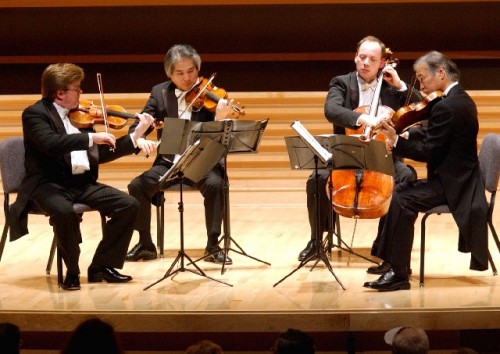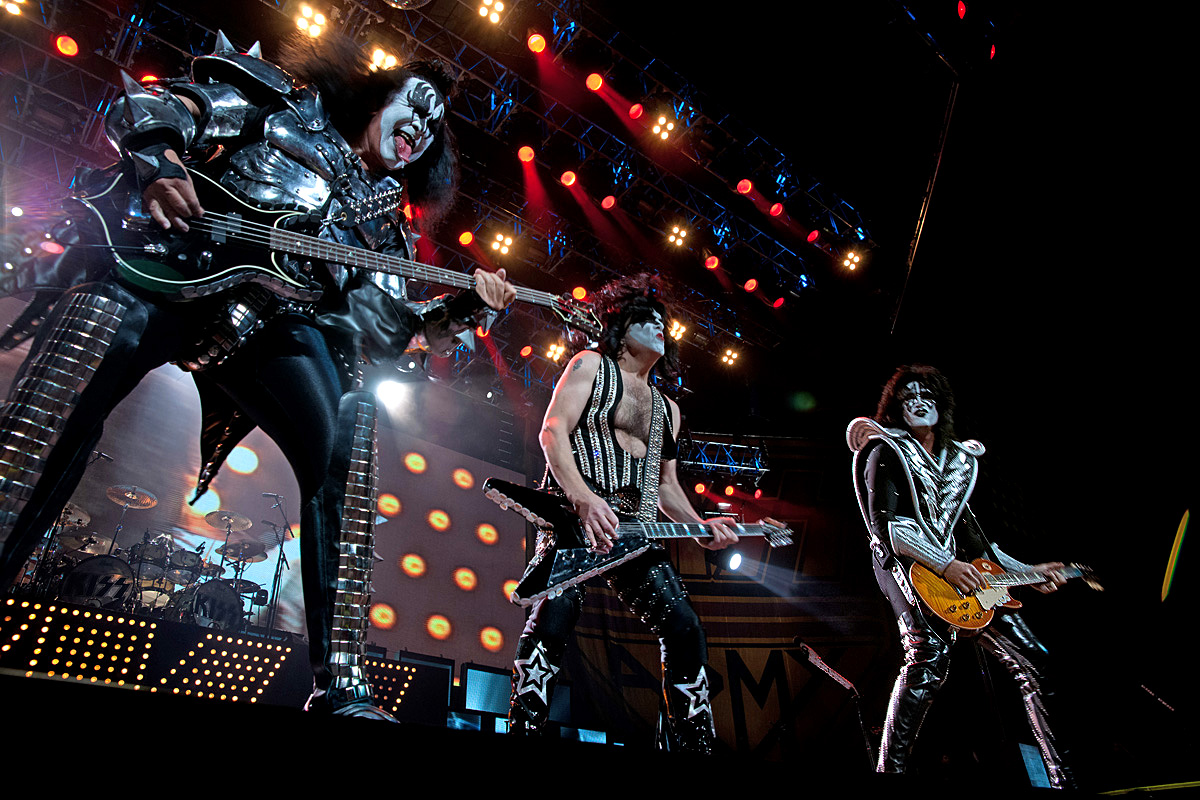Forming an ensemble: ensemble types eg string quartet, rock band, jazz band, vocal group; auditions
Choosing repertoire: resources eg music library, CD collections, online music players, sheet music, real
books
Choosing roles: eg band leader, musical director, frontperson, administrator, publicist, choreographer
 Forming An Ensemble
Forming An Ensemble
String QuartetsA string quartet is an ensemble of four various different string instruments to form a group. A string quartet usually consists of two violinists, a violist and a cellist.
The two violins usually represent the soprano and alto voices , whereas the viola usually represents a tenor voice. The cello is then composed to represent the bass of a choir.
Usually the first violin takes up the leading role and plays the main melody whilst the second violin and the viola fill in with the inner harmonies, the cello then acts as a supporting bass line.
 Rock Bands
Rock Bands
Rock bands usually consist of a group of musicians who play electronic instruments supported by an acoustic rhythm section (a drum kit).
The typical line up of a standard rock is: Lead vocals, lead guitar, rhythm guitar, bass guitar, drum kit. Although some bands use pianos and synthesisers too depending on their personal taste.
A lot of rock music is noticeable because of the distorted guitars and rock like drum patterns (straight 4/4).
- The lead singer sings the main melody of the music with lyrics to aid them put across a message to the listeners.
- The lead singer sings the main melody of the music with lyrics to aid them put across a message to the listeners.
- The lead guitarist usually plays licks, motifs and ostinatos to support the main melody. This usually what can help you work out the song because they lead guitar bits are usually so prominent. The lead guitar also sometimes plays guitar solos in order to indulge the audience and show off their technical skill as a musician.
- The rhythm guitarist usually takes more of a back seat role. The lead guitarist usually relies on the rhythm guitarist to play off of and get inspiration for different licks and motifs. The rhythm guitarist usually just plays chords in the background to help drive the song further and back up supporting melodies.
- The bass guitarist is probably the most subtle out of all of the plays in a rock band, playing way behind in the background . The bassist usually sits back with the drummer and has more of a quiet role in keeping the rhythm steady. The bassist usually bases the base line on the chords of the rhythm guitar so that it keeps a prominent and steady backing for the song.
- The drummer is the person that keeps the rest of the band in time with each other. Without the drummer everybody else would probably be all over the place. It is important that the drummer can keep a steady even beat much alike a metronome click.
Jazz Bands
 A jazz band is a form of musical ensemble which plays the genre Jazz music. A classic jazz band usually consist of two different sections, a rhythm section and a horn section.
A jazz band is a form of musical ensemble which plays the genre Jazz music. A classic jazz band usually consist of two different sections, a rhythm section and a horn section. - The rhythm section of the percussion, double bass or bass guitar, and usually at least one instrument capable of playing chords, such as a piano, guitar, Hammond organ or vibes; most will usually have more than one of these. The standard rhythm section is piano, bass and drums which is sometimes augmented by a guitar. In the bigger ensembles which play more swing jazz use additional pianos, accordions and banjos.
- The horn section consists of wind and brass instruments which play the melody and the main accompaniment. The instruments in this section usually consist of trumpet, saxophone and clarinet. Later jazz bands began to include trombones and flutes.
Vocal Groups
 Vocal groups such as choirs and barbershop quartets usually consist of 4 specific roles. Soprano - the more higher pitched singer(s), usually a female due o the higher vocal ranges.
Vocal groups such as choirs and barbershop quartets usually consist of 4 specific roles. Soprano - the more higher pitched singer(s), usually a female due o the higher vocal ranges.Alto - Lower than the soprano but usually can be a male or a female because the vocal range isn't as hard to hit as the sopranos.
Tenor - The tenor singers are usually male because the range is that of a middle male vocal.
Bass - Bass is usually sang by the male(s) because the vocal range is so low.
Auditions
In most cases when you apply to be part of a musical ensemble, whether it be a jazz band, orchestra, rock band or vocal group you would need to go through an audition process.
The reason behind sitting an audition is so that the other players in the ensemble can assess your ability to play and see how well you play along side them. It is important in a ensemble that all of the players are of a relatively equal ability so that they don't have to rely on each other as much.
Choosing Repertoire
When performing in a musical ensemble your repertoire needs to be something that reflects you as a band. Many people who wish to start out as a band choose to do covers of famous bands that influence how they want to sound once they start writing their own material. Other performers choose a repertoire based on popularity of the pieces, such as an orchestra or barbershop quartet. Orchestras usually play famous pieces by older composers such as Mozart and Beethoven to demonstrate their technical playing ability and their togetherness as an ensemble.
Barbershop quartets usually choose a repertoire based on the popularity of the song due to there being very distinctive barbershop songs that grab the audiences eye such as Lollipop and Barbara Anne.
When learning the different songs, depending on the type of ensemble you are in determines how you usually get the music for your repertoire. If rock bands were planning on doing covers of songs they would usually gather the sheet music from the Internet or work it out by ear through listening to recordings of the songs. Orchestras usually get their music from music libraries because of how dated it usually is and how much of it they would need.
Choosing Roles
Most of the roles within an ensemble depends on the characteristics and personality of each member. When putting together a rock band, the leader of the band (the frontman) is usually the person who is the loudest, most confident and gets the crowd going, this person is normally the lead singer, although sometimes it is other members as well. Once bands get big enough and are serious about their future together, they usually employ a manager to take on the roles of booking them gigs, looking after the administration side of he band and organising the members.
In some cases bands and musicians alike employ people to take on the role of composing their music for them, this is usually to take the weight off of their shoulders because they have so much other stuff to concentrate on.
No comments:
Post a Comment